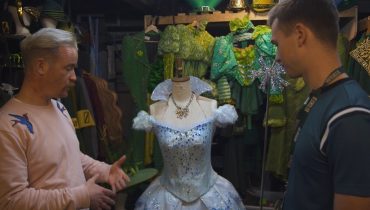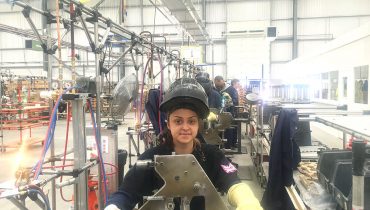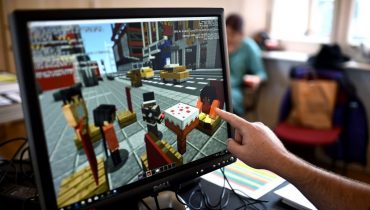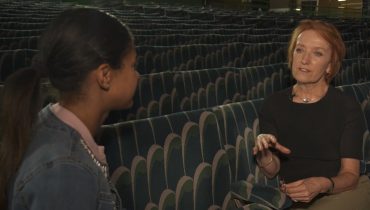 What’s the job?
What’s the job?
Associate Director.
Who would I be working for?
Anywhere that a director is needed, so it could be in a theatre or on a TV/film set. On really small productions there may not be a need for an associate director, so it’s usually bigger-budget shows that need one.
What do they do?
The associate director role is a tricky one to pin down, because it can vary drastically depending on the medium (i.e. theatre, TV or film), as well as the needs of the particular show and director. For Petra from Wicked (featured in the film above), it involves working with the cast to make sure their performances stay true to the show and keep improving.
What sort of work is involved?
This will vary a lot, but here are some of the things that associate directors might have to do:
- Audition new cast members.
- Direct any new arrivals and help them to fit into the show.
- Take charge of rehearsals.
- Watch regular performances and make notes about anything artistic that is going wrong or can be improved.
- Hold meetings with cast members to go over their performances and make them better where possible.
- Make sure that performances don’t slip away from the original vision for the show, and that actors stay true to their characters.
- Some admin work, such as dealing with disciplinary issues.
What skills do I need?
- Lots of experience with as many performing roles as possible, as you’ll need to be able to give tips to all of the actors, singers and dancers, as well as choreographers and other members of the creative team.
- A good eye and attention to detail.
- Great communication skills, and the ability to tell when someone would benefit from some stern words or some more gentle encouragement.
What qualifications do I need?
Directing qualifications could be useful, but practical experience is the main thing. You need to get involved with as many performances as you can, starting now! Whether it’s your school plays, amateur productions or local theatres, talk to people to see how you can get involved and help out in any role.
What hours would I work?
This will very much depend on the role, but on a theatre show like Wicked you would need to attend a few performances every week to keep an eye on things, so there will be evening work involved on some days. Although if you love theatre, watching Wicked every week might not seem like work!
Where would I work?
Wherever the magic of performance takes place! Most TV work in the UK is based around the big cities, film studios are generally concentrated around London, but theatres are all over the place, so you could be based just about anywhere.
How much would I get paid?
Again, this could vary hugely depending on the show and medium you’re working in, but you could expect to earn between £14,000 – £40,000 depending on your experience.
Can I do work experience?
Many theatres will take people on, but sometimes only once you’re 18, so it’s best to get in touch with your local theatre and ask, or see if your school has any useful contacts. But as we said above, any experience is valuable, so try to get involved wherever and whenever you can and there’s nothing to stop you from getting together with some friends and putting on your own show!
How might the job change in the future?
Technology may change certain aspects of performance, so you’ll need to make sure you keep on top of it and know what kind of tech is being used in theatres and on TV, but the basic roles of acting, singing and dancing are unlikely to change a whole lot.






























